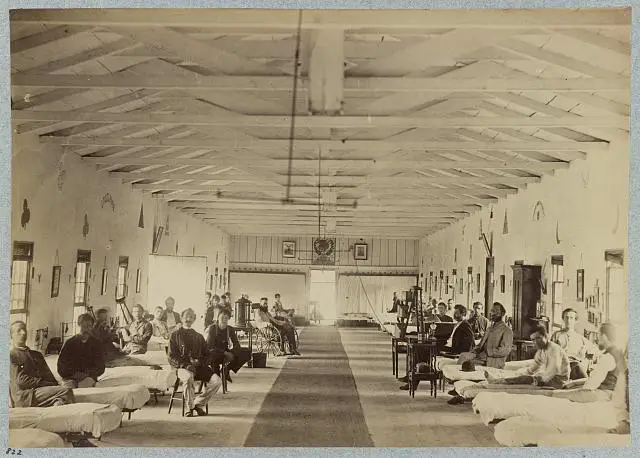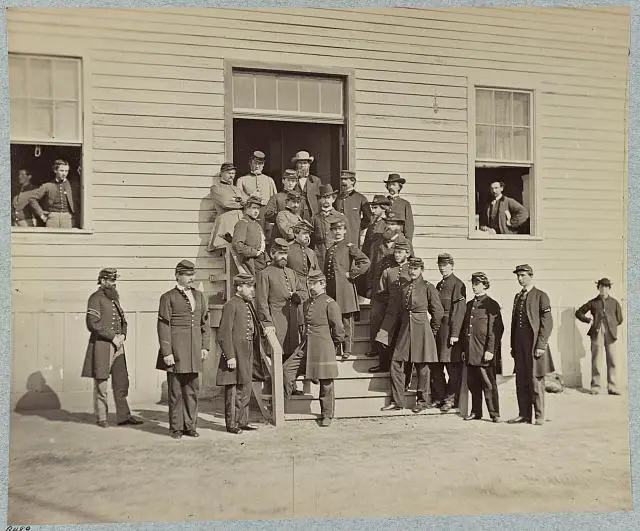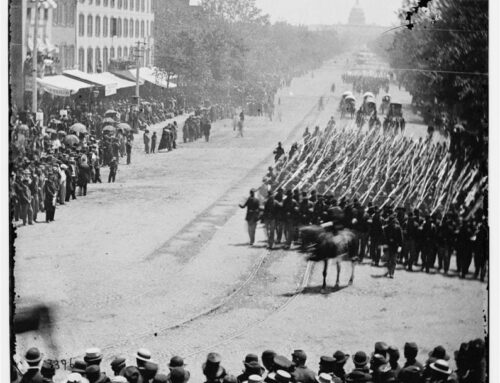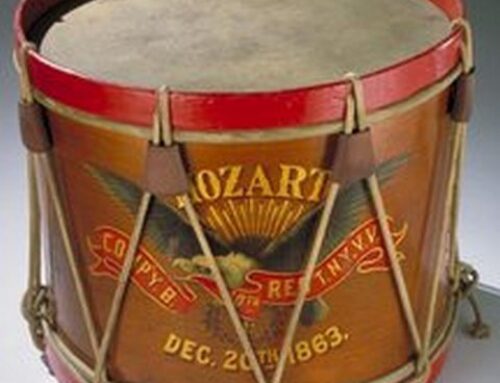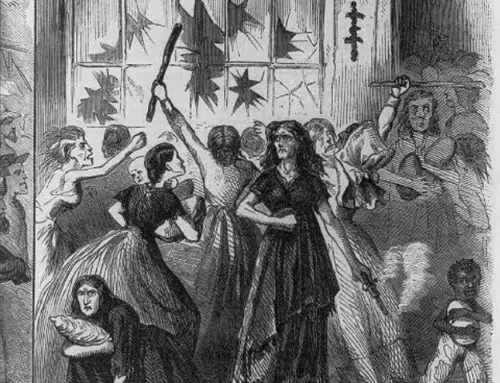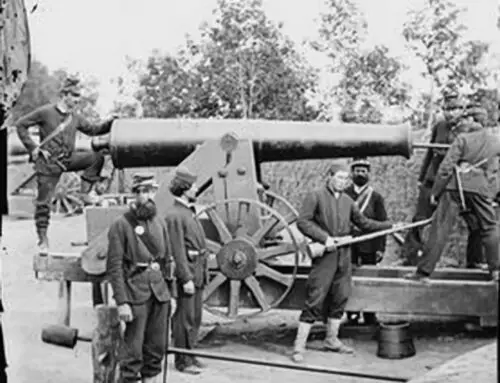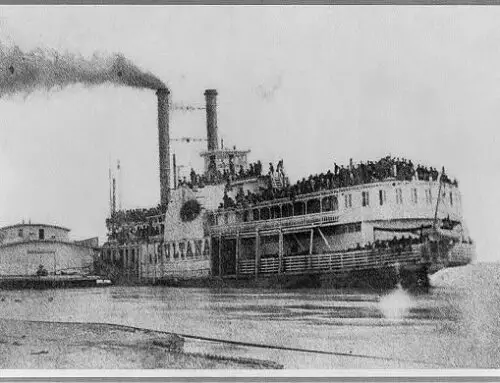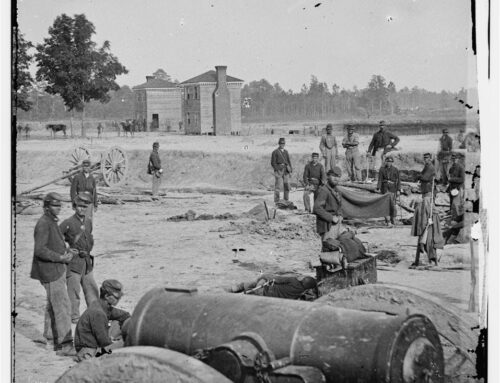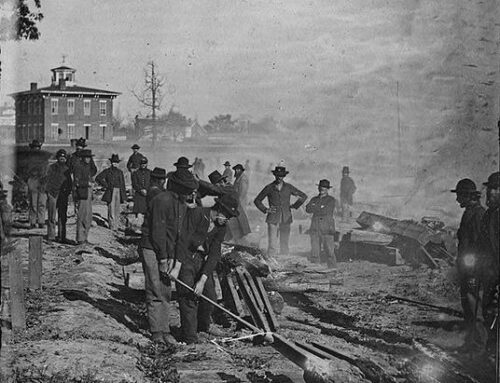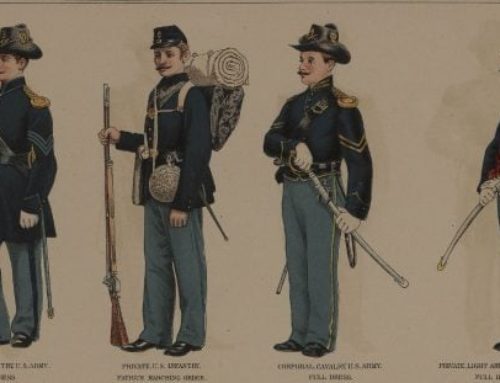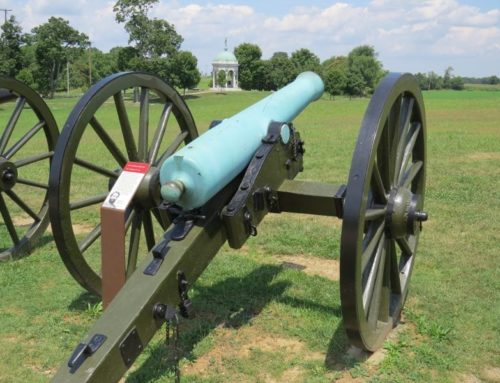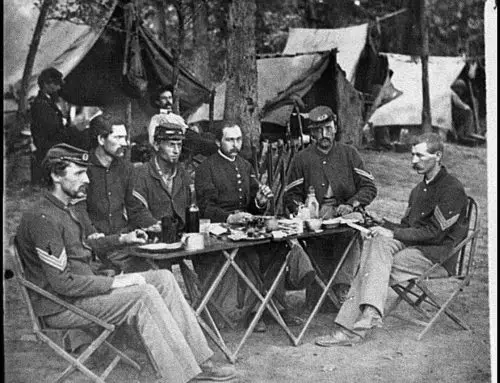There were a whole host of Civil War diseases during the American Civil War.
The major cause of death during the Civil War was disease.
Disease killed more people than everything else combined including gunshots, artillery, accidents, drowning, starvation, suicide etc…
The worst disease in the Civil War was Dysentery. Dysentery accounted for around 45,000 deaths in the Union army and around 50,000 deaths in the Confederate army.
The reason Dysentery and so many other diseases were able to spread so rapidly through both armies was primarily because of a lack of sanitation practices and contaminated water. Proper hygiene during this time was nonexistent.
This was not because doctors and nurses were negligent. They just did not know any better. Civil War Medicine was not yet advanced enough to connect a lack of hygiene with disease.
For example during a typical Civil War surgery cleanliness was a mere afterthought. Surgeons would often use the same tools continuously on patient after patient never cleaning them. They might wipe them off on their apron, but that was about as much cleaning as any piece of equipment received.
Cross contamination was not known, so there was no thought of washing and sanitizing instruments after they had been used. Needless to say surgeons did not wash their hands between patients either.
Unfortunately for people back then they didn’t realize that there was a link between hygiene and health. Civil War nurses also helped to tend to sick soldiers. Often they put themselves at risk for disease in doing so.
Disease and Contaminated Water
Simple things such as placing a latrine downstream and away from the clean water supply were often overlooked. This foul water would quickly lead to water contamination which made the development and spread of disease much more frequent.
An interesting book that provides a great deal of information about Civil War diseases is #ad Nature’s Civil War: Common Soldiers and the Environment in 1862 Virginia (Civil War America). It describes what the soldiers really had to endure just to keep themselves healthy in such an unhealthy environment.
Civil War Disease List
So what diseases were there in the Civil War? Here is a look at some of the major Civil War diseases that people had to contend with:
Civil War Diseases: Typhoid
Typhoid was another major killer. This disease was a result of contaminated water or food. Typhoid killed around 30,000 Confederate and 35,000 Union troops during the war. 1 out of every 3 people who contracted this disease died of it.
Civil War Diseases: Pneumonia
Pneumonia was responsible for the deaths of 20,000 Union and 17,000 Confederate troops. 1 in 6 people who got this disease died from it. Stonewall Jackson died from Pneumonia after being shot by his own men during the battle of Chancellorsville.
Pneumonia was more of an opportunistic type of disease. It looked for weak people to inject itself into. If you became wounded on the battlefield or became sick with something else there was a good chance Pneumonia was going to find you.
Civil War Diseases: Measles
Measles killed a lot of people during the Civil War around 11,000 soldiers in total. Not as many as other diseases did but it had its fair share. With so many people gathered in such small areas this disease was able to spread rapidly. About 1 in 20 people who got this disease died as a result of it.
Civil War Diseases: Tuberculosis
Tuberculosis killed about 14,000 soldiers during the war. There was no known cure for it during the war. Even today there is no real cure, it can be treated but never cured. Once you get this disease you get it for life.
Civil War Diseases: Malaria
Malaria was also prevalent during the war killing roughly 30,000 soldiers. This number is high but considering around 3 million people contracted the disease it was not often fatal. This was due in large part to the readily available supply of quinine, which was used to successfully prevent and treat the disease.
The biggest thing that all of these Civil War diseases had in common was that nobody had any idea how to cure them. With the exception of Malaria.
This spelled bad news if you were one of the unfortunate ones to come down with any of these diseases.

